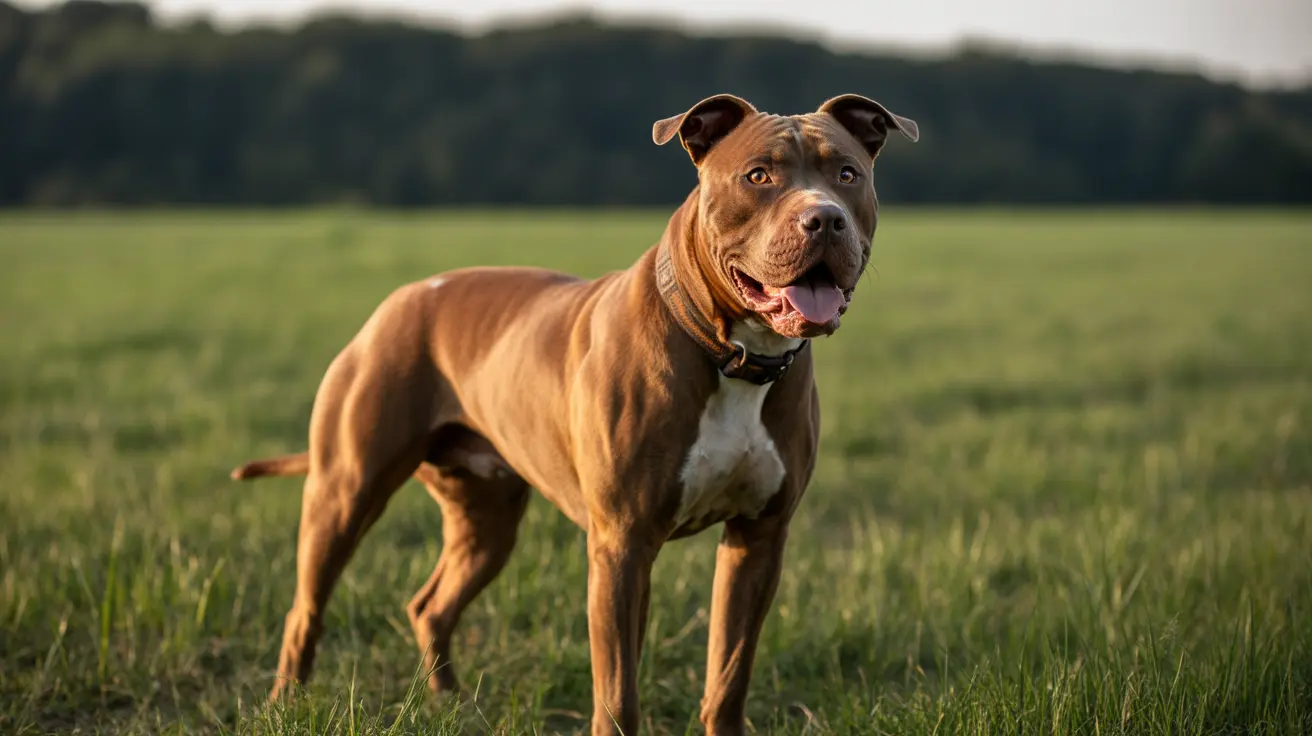Can Dogs Have Autism or Down Syndrome? Understanding Genetic and Behavioral Disorders in Dogs
Dogs are beloved members of our families, and when they exhibit unusual behavior or developmental differences, it's natural to wonder if they might be affected by conditions similar to those seen in humans, such as Down syndrome or autism. While these human conditions have specific medical definitions and causes, the reality for dogs is quite different.
Why Dogs Cannot Have Down Syndrome
Down syndrome in humans is a genetic disorder caused by the presence of an extra full or partial copy of chromosome 21. This results in a total of 47 chromosomes instead of the typical 46 and leads to characteristic physical traits and cognitive delays. Humans have 23 pairs of chromosomes, whereas
dogs have 39 pairs, making their overall genetic structure significantly different.
As dogs do not possess a chromosome 21 equivalent, they cannot have Down syndrome in the same biological sense that humans do. However, they can experience a range of
genetic or congenital disorders that may result in symptoms reminiscent of Down syndrome.
Conditions That May Mimic Down Syndrome in Dogs
Several disorders in dogs can lead to developmental, physical, or behavioral traits comparable to human Down syndrome. These include:
- Congenital Hypothyroidism: This is an underactive thyroid gland present from birth. Common symptoms include stunted growth, cognitive delays, a broad skull, delayed tooth eruption, lethargy, and poor coat quality. Breeds commonly affected include French Bulldogs, German Shepherds, and Fox Terriers.
- Pituitary Dwarfism: Due to a deficiency in growth hormone from the pituitary gland, this condition causes dogs to retain a puppy-like appearance even in adulthood. German Shepherds and spitz breeds are especially prone.
- Congenital Hydrocephalus: Characterized by excess cerebrospinal fluid in the brain. Symptoms include a domed skull, wide-set eyes, lack of coordination, seizures, and sometimes blindness. Toy and brachycephalic breeds like Chihuahuas, Bulldogs, and Pomeranians are more frequently affected.
- Portosystemic Shunt: This liver condition occurs when blood bypasses the liver, preventing toxin filtration. Affected dogs may show neurological problems, vomiting, stunted growth, and behavioral abnormalities. Breeds like Yorkshire Terriers, Maltese, and Irish Wolfhounds are susceptible.
- Chromosomal Abnormalities: Rare but possible, defects in a dog’s chromosomes can result in physical and behavioral traits similar to human Down syndrome, such as abnormal facial structure, delayed development, and organ issues.
Recognizing the Signs
Dog owners should be aware of the following symptoms that may indicate a congenital or developmental disorder:
- Unusual facial features (e.g., a flattened or wide-set face)
- Shortened limbs or disproportionate body structure
- Hair loss or poor coat condition
- Skin problems
- Delayed responses to training or learning difficulties
- Disorientation, anxiety, or lack of social engagement
- Vision or hearing deficits
- Muscle weakness or low muscle tone
- Seizures or erratic behavior
Diagnosis and Treatment
Veterinarians use a combination of
clinical evaluation, blood work, imaging, and sometimes
genetic tests to determine the cause of the symptoms. Here’s how they may address specific disorders:
- Hormone therapy for congenital hypothyroidism
- Growth hormone and thyroid supplements for pituitary dwarfism
- Surgery or medical management for portosystemic shunt
- Medication or, rarely, surgery to treat hydrocephalus
Managing Genetic Disorders at Home
While there are no home remedies for genetic or congenital diseases, dedicated
supportive care can improve a dog’s quality of life:
- Adhering to prescribed medication schedules
- Regular grooming and coat maintenance
- Environment adjustments (e.g., ramps or stair gates)
- High-quality, breed-appropriate nutrition
Autism in Dogs?
Unlike humans, there's no formal diagnostic framework for
canine autism. However, dogs can display
autistic-like behaviors such as repetitive actions, social withdrawal, or extreme sensitivity to stimuli. These behaviors may stem from genetic disposition, traumatic experiences, or neurodevelopmental issues. Vets may refer to such traits as
Canine Dysfunctional Behavior rather than autism.
Breeds More Prone to Genetic Disorders
Some breeds are predisposed to specific disorders:
- Toy breeds and brachycephalic breeds – hydrocephalus, skeletal issues
- Working breeds like German Shepherds – pituitary dwarfism
- Small breeds including Yorkies and Maltese – liver shunts
Responsible breeding and pre-breeding genetic testing can help reduce occurrences of hereditary conditions.
Consult a Veterinarian
If you notice traits like cognitive delay, behavioral oddities, or unusual physical features in your dog, consult a vet. Early diagnosis improves the chances of effective care and improved wellbeing.
Conclusion
To answer the original question:
dogs cannot have Down syndrome or autism in the same way humans do. However, they may exhibit similar symptoms due to distinct genetic, developmental, or neurological issues. Understanding these differences is essential for ensuring proper diagnosis, treatment, and compassionate care.





